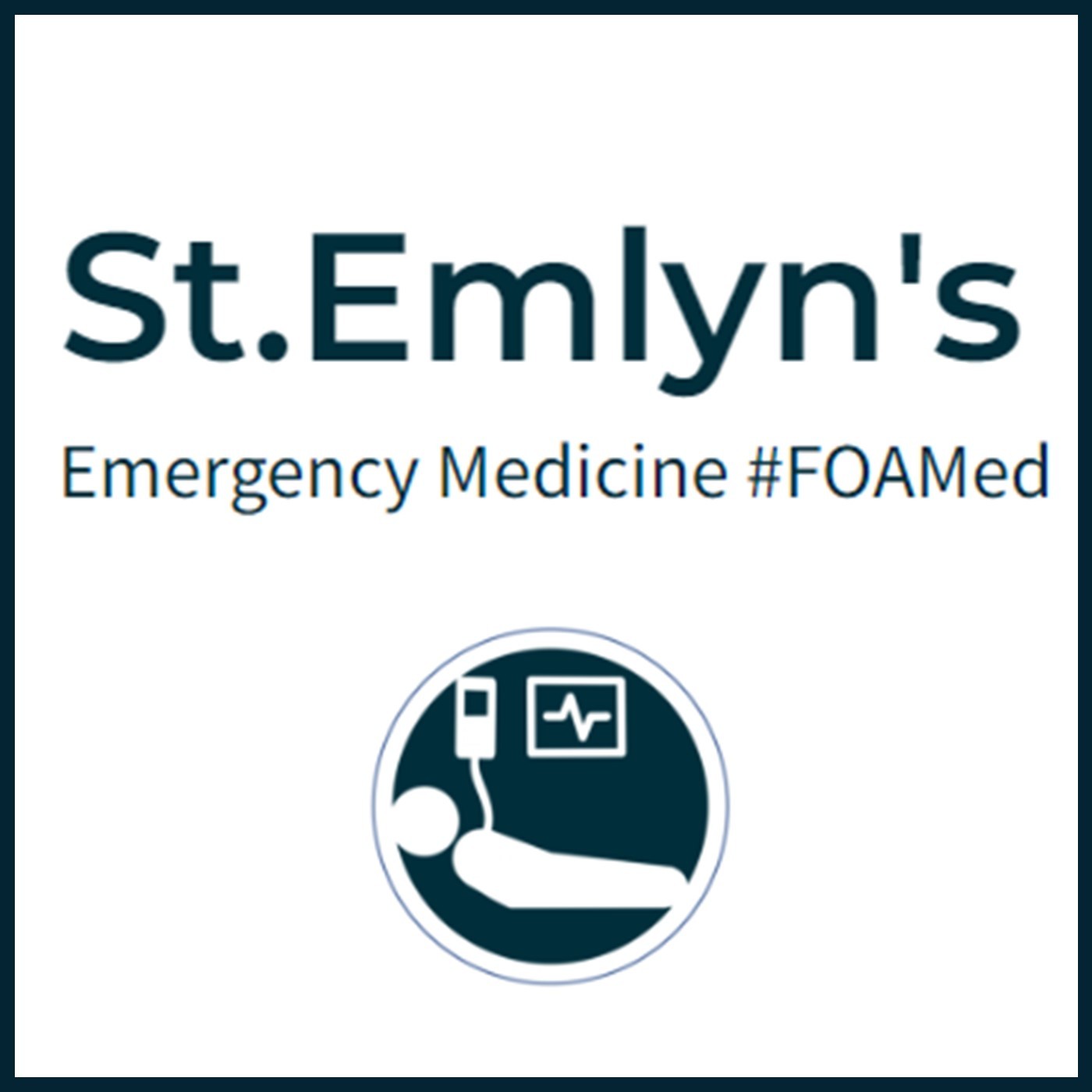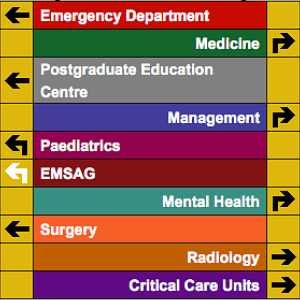
1.3M
Downloads
272
Episodes
A UK based Emergency Medicine podcast for anyone who works in emergency care. The St Emlyn ’s team are all passionate educators and clinicians who strive to bring you the best evidence based education. Our four pillars of learning are evidence-based medicine, clinical excellence, personal development and the philosophical overview of emergency care. We have a strong academic faculty and reputation for high quality education presented through multimedia platforms and articles. St Emlyn’s is a name given to a fictionalised emergency care system. This online clinical space is designed to allow clinical care to be discussed without compromising the safety or confidentiality of patients or clinicians.
Episodes

Saturday Nov 02, 2019
Ep 149 - September 2019 Round Up
Saturday Nov 02, 2019
Saturday Nov 02, 2019
A Month in Review: Key Takeaways from St Emlyn's September 2019 Content
Welcome to a detailed overview of the latest content from St Emlyn's, focusing on the valuable insights and educational resources we shared throughout September 2019. This month’s offerings span a wide range of topics, from the evolving concept of the "resuscitationist" to the increasing challenges posed by decompensated liver disease, and the ongoing development of emergency medicine education. Here’s a look at the most important takeaways.
The Resuscitationist: More Than Just a Title
The term "resuscitationist" has become a buzzword within the emergency medicine (EM) and critical care communities, especially following its emergence from the SMACC (Social Media and Critical Care) conferences. Dan Horner delved into this concept in a recent presentation, sparking a broader discussion about what it truly means to identify as a resuscitationist.
At its core, being a resuscitationist isn’t just about having an interest in the resuscitation room. It requires a blend of sharp clinical skills, deep knowledge of resuscitation science, and the ability to apply evidence-based practices effectively. But beyond technical expertise, leadership and teamwork are crucial. A resuscitationist must excel in managing high-stakes, chaotic situations where decisions are made with limited information and under intense time pressure.
Moreover, Dan highlights the importance of humility and collaboration. The best resuscitationists are those who recognize their own limitations and are skilled at drawing on the strengths of others, whether from different specialties or professions. This collaborative approach not only enhances patient care but also builds stronger, more effective resuscitation teams.
Decompensated Liver Disease: A Growing Concern in the ED
Liver disease is on the rise, particularly due to lifestyle factors like alcohol consumption and obesity. Gareth Roberts tackled this pressing issue in his blog post on decompensated liver disease, which is becoming increasingly common in emergency departments (EDs) across the UK and beyond.
Gareth outlines a comprehensive care bundle designed to manage patients with decompensated liver disease effectively. This bundle includes seven key points:
-
Thorough Investigation: Quick and accurate investigations are essential, particularly for detecting complications like spontaneous bacterial peritonitis (SBP), which can be life-threatening.
-
Infection Management: Aggressive treatment of infections is critical, with a focus on using appropriate antibiotics and monitoring for SBP.
-
Acute Kidney Injury (AKI) and Hyponatremia: These complications are common in liver disease patients and must be managed carefully. Gareth discusses the potential benefits of human albumin in these cases.
-
GI Bleeding: Gastrointestinal bleeding, especially from varices, poses a significant risk. Gareth directs readers to additional resources on St Emlyn’s, including a presentation by Chris Gray on managing GI bleeding.
-
Hepatic Encephalopathy: This condition can severely alter a patient’s mental status and requires careful management. With the increasing prevalence of liver disease, understanding and managing hepatic encephalopathy is more important than ever.
Gareth’s post is a must-read for anyone dealing with liver disease in the ED, providing both practical advice and links to further resources.
Expanding Education: The MSc in Emergency Medicine
Education is a cornerstone of St Emlyn’s, and we’re excited to announce the expansion of the MSc in Emergency Medicine at Manchester Metropolitan University. This program has been running successfully for several years and is now broadening its scope to include paramedics, making it a truly multi-professional and multi-disciplinary course.
The MSc program offers a variety of modules tailored to the specific needs of different healthcare professionals. Whether you’re looking to deepen your clinical knowledge, enhance your leadership skills, or explore new areas of emergency medicine, this program has something to offer. For more details, visit our website or reach out directly.
Supporting St Emlyn’s: Keep Our Content Free and Accessible
St Emlyn’s remains committed to providing free and open-access content to the global emergency medicine community. However, maintaining and expanding our offerings requires resources. If you find value in what we provide, please consider supporting us financially. Even a small contribution can help us continue to deliver high-quality content to healthcare professionals worldwide.
Introducing Coda: The Next Evolution After SMACC
Coda is the latest evolution in the SMACC legacy, aiming to broaden the scope of its predecessor by incorporating a wider range of specialties, including oncology, public health, and surgery. As a member of the Coda executive team, I can attest to the ambitious goals of this new conference series.
Coda retains the clinical excellence that SMACC was known for, but with an added emphasis on advocacy. Each year, Coda will tackle a significant global health issue, with the inaugural theme focusing on climate change and its impact on medical practice.
It’s important to note that while climate change is a key focus, it won’t dominate the entire conference. Only about 25% of the program will be dedicated to this theme, with the remaining 75% featuring the high-quality clinical content you’ve come to expect from SMACC. The first Coda conference is set to take place in Melbourne in 2020, and we encourage you to participate, whether in person or remotely.
The Zero Point Survey: A Game-Changer in Resuscitation
The Zero Point Survey, a concept championed by Cliff Reid, is gaining widespread recognition for its transformative impact on resuscitation practices. The idea shifts the focus of the primary survey in resuscitation from when you first encounter the patient to what you do before you even meet them.
This approach emphasizes the importance of preparation—both mental and environmental. By optimizing everything you can control before the patient arrives, you set the stage for delivering high-quality care when it matters most.
Feedback from the EM community has been overwhelmingly positive, with many clinicians reporting that the Zero Point Survey has changed how they manage the resuscitation room. It’s not just a theoretical concept; it’s a practical tool that’s making a real difference in patient outcomes.
If you’re not yet familiar with the Zero Point Survey, I strongly encourage you to explore the resources available on the St Emlyn’s website, including an excellent video by Cliff Reid that outlines the key elements of this approach.
Looking Ahead: What’s Next for St Emlyn’s?
As we wrap up our review of September’s content, it’s clear that the St Emlyn’s team has been hard at work bringing you the latest in emergency medicine education and clinical practice. But there’s much more to come.
In the coming months, we’ll be covering exciting topics at upcoming conferences, including the ArchiEM conference in Gateshead and the Slovenia ERC conference. These events promise to bring fresh insights and new perspectives that we’ll be sharing with you through our blog posts and podcasts.
In the meantime, keep doing the incredible work you do in emergency medicine. It’s a challenging field, but it’s also incredibly rewarding, and you’re making a difference every day. Thank you for being part of the St Emlyn’s community, and I look forward to continuing this journey with you.
Stay tuned for more great content, and as always, keep pushing the boundaries of what’s possible in emergency care.

No comments yet. Be the first to say something!